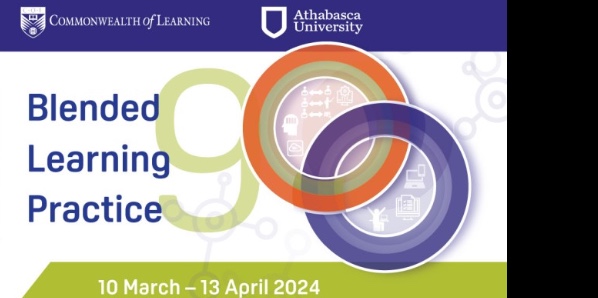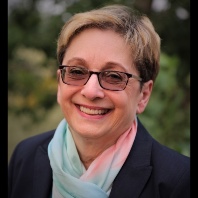
Blended Learning Practice (BLP) MOOC
Description
The goal of BLP MOOC is to introduce blended learning as an important and rapidly developing form of education, with an emphasis on the benefits it offers to both educators and students, including greater flexibility and convenience, as well as potential increases in learner creativity and independence.
The course has been designed to assist teachers and other educational professionals to adopt blended learning strategies through a step-by-step constructivist and design-based approach. Throughout the course, you will be able to reflect on decisions taken to provide an authentic learning experience in your own context. It will provide a general discussion of types of blended learning in reference to the level of education, the needs of the students, and the subject being taught. The discussions and associated activities will review pedagogy, materials, and technology usage.
The course has been designed to assist teachers and other educational professionals to adopt blended learning strategies through a step-by-step constructivist and design-based approach. Throughout the course, you will be able to reflect on decisions taken to provide an authentic learning experience in your own context. It will provide a general discussion of types of blended learning in reference to the level of education, the needs of the students, and the subject being taught. The discussions and associated activities will review pedagogy, materials, and technology usage.
Other information
The intermediate-level Blended Learning Practice massive open online course (MOOC) is an introduction to blending technology and distance education teaching strategies with traditional, in-person classroom activities. This free, 5-week course provided by the Commonwealth of Learning in partnership with Athabasca University is open to teachers and other educational professionals considering implementing blended learning practice into their own classrooms or programs.
Course format
The course has been designed to assist teachers and other educational professionals to adopt blended learning strategies through a step-by-step constructivist and design-based approach. Throughout the course, you will be able to reflect on decisions taken to provide an authentic learning experience in your own context. It will provide a general discussion of types of blended learning in reference to the level of education, the needs of the students, and the subject being taught. The discussions and associated activities will review pedagogy, materials, and technology usage.
Prerequisites
None
Qualifications possibilities
Certificates of Participation and Completion available (at no charge)
License learning materials
http://hdl.handle.net/11599/3095
Information
| Language |
English |
| Start date | 10 March 2024 |
| Duration | 5 weeks |
| Hours of study | 25 hours |
| Recognition |
|
| EQF-Level | EQF level 5 - Foundation/Diploma of Higher Education |
|
|
Open license: (re-)use it |
|
|
Free admittance |
|
|
Free of charge |
|
|
Learn anywhere online |
|
|
Quality assured |
| Massive | Massive |
| Full Course Experience | Full course experience |
| Provider | OpenupEd |
26-Feb-2024
Blended Learning Practice (BLP) MOOC
https://www.blpmooc.org
The intermediate-level Blended Learning Practice massive open online course (MOOC) is an introduction to blending technology and distance education teaching strategies with traditional, in-person classroom activities. This free, 5-week course provided by the Commonwealth of Learning in partnership with Athabasca University is open to teachers and other educational professionals considering implementing blended learning practice into their own classrooms or programs.
The goal of BLP MOOC is to introduce blended learning as an important and rapidly developing form of education, with an emphasis on the benefits it offers to both educators and students, including greater flexibility and convenience, as well as potential increases in learner creativity and independence.
The course has been designed to assist teachers and other educational professionals to adopt blended learning strategies through a step-by-step constructivist and design-based approach. Throughout the course, you will be able to reflect on decisions taken to provide an authentic learning experience in your own context. It will provide a general discussion of types of blended learning in reference to the level of education, the needs of the students, and the subject being taught. The discussions and associated activities will review pedagogy, materials, and technology usage.
The course has been designed to assist teachers and other educational professionals to adopt blended learning strategies through a step-by-step constructivist and design-based approach. Throughout the course, you will be able to reflect on decisions taken to provide an authentic learning experience in your own context. It will provide a general discussion of types of blended learning in reference to the level of education, the needs of the students, and the subject being taught. The discussions and associated activities will review pedagogy, materials, and technology usage.
English
Instructor-paced
10-03-2024
13-04-2024
5
25
Athabasca University
http://www.athabascau.ca/
[{"file":"\/images\/institution_logos\/athabasca.png","params":"{\"rotation\":0,\"scale\":73,\"imagedim\":{\"x\":200,\"y\":200,\"w\":219,\"h\":118.99},\"cropdim\":{\"x\":200,\"y\":200,\"w\":200,\"h\":100},\"crop\":true,\"quality\":0,\"mainimagedim\":{\"x\":200,\"y\":200,\"w\":300,\"h\":163}}"}]
- Formal certificate available
The course has been designed to assist teachers and other educational professionals to adopt blended learning strategies through a step-by-step constructivist and design-based approach. Throughout the course, you will be able to reflect on decisions taken to provide an authentic learning experience in your own context. It will provide a general discussion of types of blended learning in reference to the level of education, the needs of the students, and the subject being taught. The discussions and associated activities will review pedagogy, materials, and technology usage.
Certificates of Participation and Completion available (at no charge)
http://hdl.handle.net/11599/3095
None
For more information about the EFQ levels click here
EQF level 5 - Foundation/Diploma of Higher Education
Professor Martha Cleveland-Innes
1. Select an image to upload (add files)
2. Click 'start upload'
3. Set the crop settings by clicking on four arrows icon.
4. Drag the crop area and zoom or rotate the image if needed.
2. Click 'start upload'
3. Set the crop settings by clicking on four arrows icon.
4. Drag the crop area and zoom or rotate the image if needed.

CC BY-SA
No
Free of charge
Always online
Yes
Massive
Full Course Experience
OpenupEd
- 0
Athabasca University
Education
Teacher training with subject specialisation
2026-01-30 16:55:21






